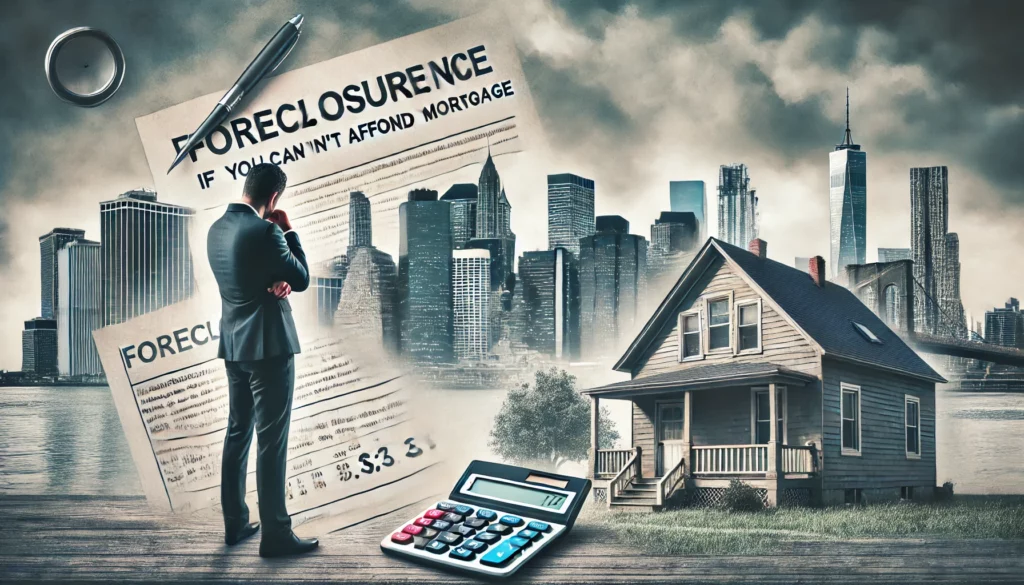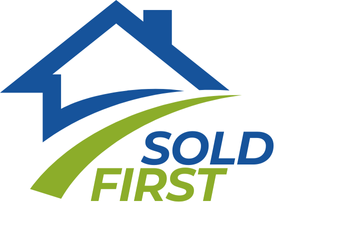What to Do If You Can’t Afford Your Mortgage in New York

Introduction
If you’re someone who can’t afford your mortgage in New York, you’re likely feeling overwhelmed, anxious, and uncertain about what to do next. This is a highly stressful situation, and the weight of financial insecurity can affect every area of your life. You may be grappling with the fear of foreclosure, unsure about how to make ends meet, and feeling uncertain about your next steps. When you type in “What to Do If You Can’t Afford Your Mortgage in New York” into a search engine, you’re likely seeking immediate solutions, detailed guidance, and a clear understanding of the options available to you. You want to know what your best course of action is, how much time you have before things get worse, and whether selling your home could be a viable option to help you regain control over your financial future.
In this blog, we’ll explore various strategies and solutions for homeowners in New York who are struggling to afford their mortgage payments. Our goal is to provide clarity and actionable advice, all while helping you make the best decision for your unique situation. We’ll cover options like loan modification, government assistance, and selling your home for cash as a quick and reliable solution. We’ll also discuss the potential drawbacks of some of these options to ensure that you can make an informed decision.
Let’s dive into these options to help you find the right solution to ease your mortgage burden.
What Are Your Options When You Can’t Afford Your Mortgage?
When you find yourself unable to afford your mortgage payments, it can feel like your options are limited. However, there are several pathways that could potentially help you avoid foreclosure or resolve your financial difficulties. The key is to understand all your available choices, weigh the pros and cons, and make an informed decision based on your unique circumstances.
1. Loan Modification: Can It Save You From Foreclosure?
Loan modification is one of the first options many homeowners consider when they can’t afford their mortgage. A loan modification involves negotiating with your lender to change the terms of your mortgage. This could include reducing your interest rate, extending the loan term, or even reducing your loan balance in some cases.
However, loan modifications can be complex and time-consuming. For example, New York homeowners may face longer processing times due to the state’s foreclosure laws. Loan modifications also often require a significant amount of documentation, including proof of income and a detailed explanation of why you’re facing financial hardship. The process can take months, and there’s no guarantee that your lender will approve the modification.
If you’re seriously considering a loan modification, it’s essential to work with a housing counselor or an attorney who can guide you through the process. Be aware that a loan modification is not always the best option, especially if your financial situation is unlikely to improve in the foreseeable future.
In some cases, homeowners in New York who are struggling with a loan modification process end up feeling trapped in a never-ending cycle of debt. Selling your house for cash could provide a faster and more reliable solution that frees you from this financial burden. If you’re interested in exploring this option, Selling Your House Fast for Cash After Job Loss might be worth considering as an alternative.
2. Government Programs and Assistance: Are You Eligible for Help?
The government offers several programs designed to assist homeowners who are struggling to afford their mortgages. These programs may provide financial relief, help reduce your monthly payments, or offer other types of assistance.
For instance, New York homeowners may be eligible for programs like the Home Affordable Modification Program (HAMP) or the Hardest Hit Fund (for those who have lost significant income). These programs aim to help homeowners by modifying loan terms, reducing monthly payments, or providing funds to assist with missed payments.
However, qualifying for these programs is not always easy. You’ll typically need to demonstrate that you’re experiencing financial hardship and meet specific eligibility requirements. Additionally, while these programs can help reduce the immediate pressure of mortgage payments, they may not be a permanent solution if your financial situation does not improve.
Furthermore, government assistance programs can sometimes take a long time to process. In New York, for example, the state’s court system can be slow when it comes to foreclosure proceedings, but that doesn’t mean your situation will improve over time. Sometimes, government programs can only delay the inevitable rather than provide a lasting solution.
3. Refinancing: Is It an Option?
Refinancing your mortgage involves replacing your current mortgage with a new loan that has better terms, such as a lower interest rate or longer loan term. This can potentially lower your monthly payment and make your mortgage more affordable.
However, refinancing can be a challenging option for homeowners who are already struggling to afford their mortgage. In many cases, lenders require good credit scores and stable income to approve refinancing. If you’ve fallen behind on your payments or if your financial situation is unstable, refinancing may not be a viable option.
Additionally, refinancing can involve significant fees, including closing costs, appraisal fees, and other charges. For homeowners in New York facing financial difficulties, these upfront costs can be an additional burden that may not make refinancing the best option.
For more information on how refinancing works, visit NerdWallet’s guide on refinancing.
Ultimately, refinancing may work for some homeowners, but for others, it might only delay the problem. If you’re in a situation where refinancing is not an option, selling your home could provide a quicker and more certain path to financial relief.
4. The Pros and Cons of Selling Your House for Cash
One of the most effective ways to deal with an unaffordable mortgage is to sell your home for cash. This option offers several key advantages, particularly if you’re looking to avoid foreclosure or quickly pay off your mortgage debt.
The Benefits of Selling for Cash
- Quick Sale: When you sell your home to a real estate investor for cash, the process is much faster than selling through traditional methods. Many cash buyers can close within a week, so you don’t have to worry about the long waiting periods associated with conventional sales.
- No Repairs or Renovations: Selling for cash means you don’t have to worry about costly repairs or upgrades. Cash buyers typically purchase homes “as-is,” so you can avoid spending money on fixing your property.
- Avoid Foreclosure: If you’re facing foreclosure, selling your home for cash can help you avoid the long-term damage that foreclosure can do to your credit. The sooner you sell, the better you can minimize the negative effects on your financial future.
The Drawbacks of Selling for Cash
- Lower Sale Price: Cash offers are often lower than the market value of your home. This can be a disadvantage if you’re hoping to make a substantial profit from selling. However, this downside is often outweighed by the speed and convenience of a cash sale, especially if you’re trying to avoid foreclosure.
- Potential Scams: Unfortunately, there are scams in the cash buying market. Some investors may try to lowball you or engage in unethical practices. To avoid this, it’s crucial to research the company you’re selling to and ensure they have a solid reputation.
While selling your house for cash may not yield the highest price, it provides significant advantages when you’re in a financial crisis.
For additional guidance on protecting yourself from scams when selling your home, visit The Better Business Bureau’s advice on avoiding scams.
5. Bankruptcy: Is It a Last Resort?
Filing for bankruptcy is another option for homeowners who can’t afford their mortgage. While bankruptcy can provide some immediate relief by stopping foreclosure proceedings and halting creditor actions, it comes with significant drawbacks.
When you file for bankruptcy, it can have a long-lasting impact on your credit score, and you may lose some of your assets. For example, if you’re filing for Chapter 7 bankruptcy, your property could be sold off to pay your debts. While Chapter 13 allows you to reorganize your debt and make affordable payments, it can take several years to complete.
Bankruptcy should only be considered as a last resort. It’s a complex legal process that requires careful planning and professional guidance. In many cases, filing for bankruptcy may not resolve the underlying issue of your unaffordable mortgage, and you may eventually need to sell your home anyway.
Conclusion: Why Selling Your Home to Sold First May Be the Best Option
In conclusion, if you’re struggling to afford your mortgage in New York, there are several options available to you, such as loan modification, government programs, refinancing, and bankruptcy. However, many of these options can be slow, complicated, or may not provide the immediate relief you’re looking for.
Selling your home to Sold First for cash offers a fast, simple solution that can help you avoid foreclosure, pay off your mortgage, and move forward with your life. While a cash sale might not result in the highest possible sale price, it provides a reliable and quick way to regain control of your financial situation.
If you’re ready to take the next step and explore selling your home for cash, Sold First can guide you through the process with a fair and honest offer. We specialize in helping homeowners like you get out of tough situations, providing a stress-free and efficient sale that gives you peace of mind.
Don’t let an unaffordable mortgage continue to cause financial strain—contact us today to learn more about how we can help you move forward with a cash offer for your home.

